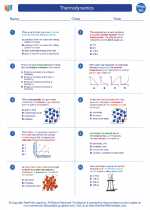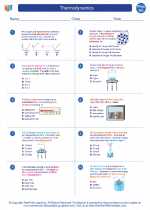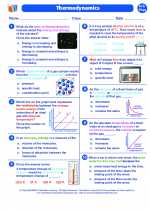Nutrient Cycling
Nutrient cycling refers to the movement and exchange of organic and inorganic matter back into the production of living organisms. It involves the processes of uptake, assimilation, release, and recycling of nutrients in ecosystems. Nutrient cycling is essential for maintaining the balance of nutrients in the environment, sustaining the productivity of ecosystems, and supporting the growth of plants and animals.
Key Nutrients
The major nutrients involved in nutrient cycling include carbon, nitrogen, phosphorus, and sulfur. These nutrients are fundamental for the growth and development of living organisms and play crucial roles in various biochemical processes.
Processes of Nutrient Cycling
Nutrient cycling involves several key processes:
- Uptake: Living organisms acquire nutrients from their surroundings through processes such as absorption by roots in plants or ingestion in animals.
- Assimilation: Once absorbed, nutrients are incorporated into the organisms' tissues and used for growth, development, and metabolic activities.
- Release: When organisms die or shed waste products, nutrients are released back into the environment in the form of organic matter or inorganic compounds.
- Recycling: Decomposers such as bacteria and fungi break down organic matter, releasing nutrients back into the soil or water, where they can be taken up by other organisms.
Importance of Nutrient Cycling
Nutrient cycling is critical for the sustainability of ecosystems and the well-being of living organisms. Some key reasons for its importance include:
- Supporting plant growth and productivity
- Maintaining soil fertility
- Regulating nutrient availability in aquatic systems
- Contributing to the balance of atmospheric gases through the carbon cycle
- Minimizing nutrient losses and maintaining ecological balance
Human Impact and Nutrient Cycling
Human activities such as agriculture, deforestation, and industrialization can significantly impact nutrient cycling. For example, excessive use of fertilizers can lead to nutrient runoff and eutrophication, disrupting natural nutrient cycles and causing ecological imbalances.
Study Guide
To further understand nutrient cycling, consider the following study guide:
- Define nutrient cycling and explain its significance in ecosystem dynamics.
- Identify the major nutrients involved in nutrient cycling and describe their roles in biological processes.
- Describe the processes of uptake, assimilation, release, and recycling in nutrient cycling, providing examples for each process.
- Explain the importance of nutrient cycling in maintaining soil fertility and supporting plant growth.
- Analyze the potential impacts of human activities on nutrient cycling and suggest mitigation strategies to minimize these impacts.
◂Physics Worksheets and Study Guides High School. Thermodynamics

 Worksheet/Answer key
Worksheet/Answer key
 Worksheet/Answer key
Worksheet/Answer key
 Worksheet/Answer key
Worksheet/Answer key
